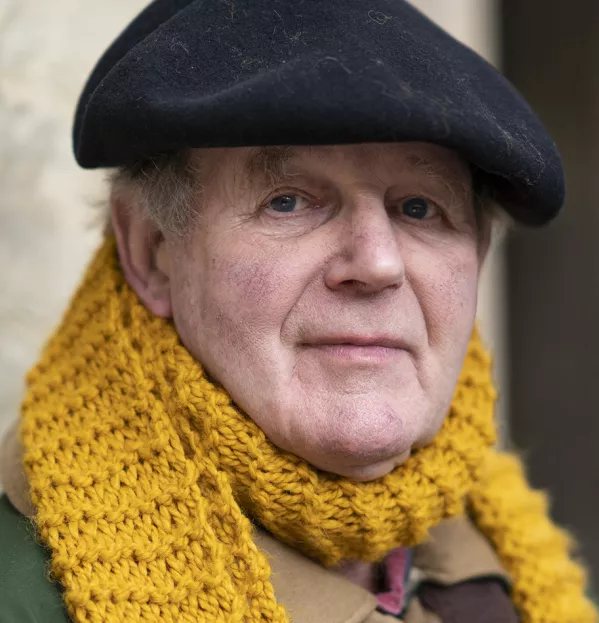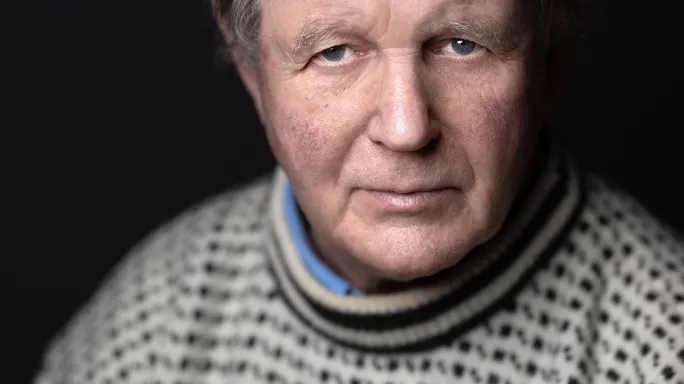
- Home
- Teaching & Learning
- General
- Michael Morpurgo: ‘Reading is not a medicine. You don’t just have to take it’
Michael Morpurgo: ‘Reading is not a medicine. You don’t just have to take it’

As important as reading is, it’s not something that comes naturally to everyone. When I was little, I had a wonderful mother who read to me, and gave me a taste for the music of words and the excitement of stories. I used to love every book she read, purely because it was her who was reading it to me.
However, like so many kids, I was rather put off reading when I went to school because there it became this “subject”. It wasn’t for enjoyment anymore, it was for testing. It was spelling, it was punctuation, it was comprehension.
Right the way through school, my reading habits were directed towards what they could do for my studies.
I went on liking stories, but I took to other things besides words on paper, such as films and the theatre. Books with small print on the page didn’t hold the same excitement.
Reading is not a medicine. You don’t just have to take it. I think we have to come at reading whatever way we can, and in my case, it’s been rather patchy throughout my life.
What I do know is that if you can become an avid reader because you enjoy it, then that is a wonderful assist in your life, in the sense that it automatically leads to greater knowledge and understanding and empathy, almost without you trying to learn these things.
They come from the stories you read, the people you meet in your stories, the places you go in your stories.
- What works to get children reading for pleasure
- How to get secondary boys reading for pleasure
- Reading for pleasure: is it in your genes?
Teachers know this, and yet the culture of reading or enjoyment of reading in schools is not nearly as strong as it should be.
The biggest problem is the same as it was when I was young, only now it is much worse. It’s not the teachers’ fault.
They’re in this position where they are judged by results in tests. You are a good teacher or not a good teacher based on that. You are a good school or not a good school based on that - and Ofsted does rule.

And while a lot of children come from homes where there are books and people read to them, it’s not nearly enough. For those who don’t have that early advantage, it’s school that’s got to provide that.
But the focus, particularly in primary school, is not nearly enough on the school library, and on giving teachers the time and the scope to be able to set aside, say, half an hour each day to concentrate on reading for pleasure.
If teachers had that time - if it was given to them and they didn’t have to fight for it; if they didn’t have to fight for every book in the school library or to even have a school library - then that could make all the difference.
But at the moment, schools are forced to travel a narrow lane towards academic success, and that’s not enough. Education needs to be broader than that and it needs to be deeper than that, and it needs to start really young.
Parents’ book clubs
If you sit a one-year-old on your lap and there’s a book between you, and that one-year-old is beginning to turn the page over to see the colours on the next page, and then likes the page before and turns it back, this is the beginning of reading Jane Austen. It’s where it all starts.
We’ve got to break down the habit of lifetimes where people are not reading to their children. So, where are the parents’ book clubs in the schools?
Parents and grandparents should be brought in, they should be telling stories to children in class and helping with the reading, so that they’re involved in this whole process.
It has to be a double whammy: a richness of education and involving parents. The more you can do that, the more successful it’s going to be.
‘We drain teachers too much’
Teachers’ enthusiasm matters so much, too. When you walk into a class you know instantly whether the children are going to be focused, and it all depends on the teacher’s fascination for the story and their own sense of discovery and wonder.
We drain teachers too much. I think that’s one of the reasons we lose so many who have talent and who are sensitive to these things, and we mustn’t, because that kind of teacher is the one who makes readers.
We’ve had a government that has placed education on the back burner for years. There are so many potholes in the sector and no one’s filling them in.
So, it’s desperate, I think, for teachers, but I would say to them: keep going. Don’t throw it in, because the children’s lives are so important. It’s not a cliché; they are our future.
You look at those children and you know this is an immensely complicated, difficult world that we’re bringing them up in. That’s why the introduction that books give to life is so important, because it is such a complex world.
And what do you do when you read? You travel the world, you talk to people in your head who have a different religion, a different take on life. It gives you a wide sense of the planet that can’t be gleaned from a programme on television. It’s closer than that, and that’s what’s so important.
Michael Morpurgo is a children’s author and patron of the HarperCollins Reading for Pleasure Awards, run in partnership with The Open University and UK Literacy Association.
The awards recognise and celebrate teachers, librarians and schools that successfully promote and encourage children’s reading for pleasure. The deadline for entries to this year’s awards is midnight on Friday 3 May 2024. Find out more and apply here
For the latest research, pedagogy and practical classroom advice delivered directly to your inbox every week, sign up to our Teaching Essentials newsletter
You need a Tes subscription to read this article
Subscribe now to read this article and get other subscriber-only content:
- Unlimited access to all Tes magazine content
- Exclusive subscriber-only stories
- Award-winning email newsletters
- Unlimited access to all Tes magazine content
- Exclusive subscriber-only stories
- Award-winning email newsletters
You need a subscription to read this article
Subscribe now to read this article and get other subscriber-only content, including:
- Unlimited access to all Tes magazine content
- Exclusive subscriber-only stories
- Award-winning email newsletters
- Unlimited access to all Tes magazine content
- Exclusive subscriber-only stories
- Award-winning email newsletters
topics in this article



